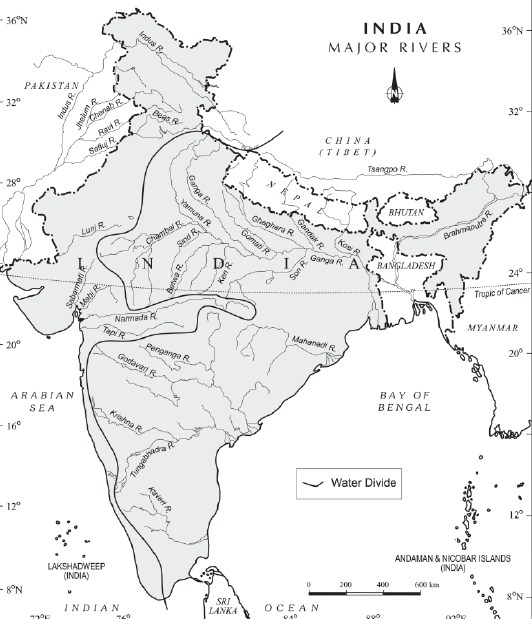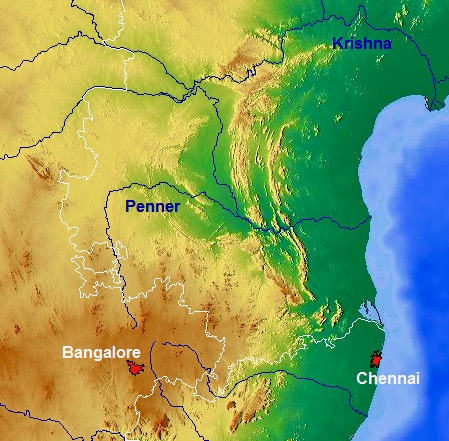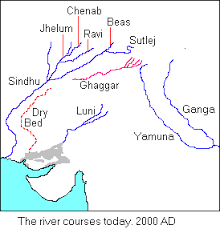The Drainage System of India is a network of rivers, lakes, and other water bodies that play a crucial role in the shaping its geography, agriculture, economy, and culture. In this article we will discuss important rivers of India.

Table of Contents
Himalayan Rivers
The northern part of India is drained by several major rivers originating from the Himalayas, including the Indus, Ganges, and Brahmaputra. These rivers are perennial and receive water from snowmelt and rainfall in the Himalayan region.
Peninsular Rivers
The peninsular region of India is drained by rivers that originate in the Western Ghats and Eastern Ghats. Major peninsular rivers include the Godavari, Krishna, Cauvery, Mahanadi, and others. These rivers are more seasonal in nature, with flow depending on the monsoon rains.
Pennar River
The Pennar River is one of the major rivers in southern India. It originates in the Nandi Hills of Karnataka. It flows through the states of Karnataka and Andhra Pradesh before emptying into the Bay of Bengal.

It is formed by the confluence of the North Pennar and South Pennar rivers near Gandikota in Andhra Pradesh. It is joined by numerous tributaries along its course, including the Jayamangali, Chitravathi, Papagni, and Cheyyeru rivers.
Some of the notable dams on the Pennar River are the Tungabhadra Dam and the Sri Sailam Dam.
"Somasila Dam is being built across the Pennar River in Andhra Pradesh"
Yamuna River
The Yamuna River is the longest tributary of the Ganga River. It Originates from the Yamunotri Glacier in the Lower Himalayas in the Indian state of Uttarakhand and travels approximately 1,376 kilometers through Haryana, Delhi, and Uttar Pradesh, before merging with the Ganges at Allahabad (Prayagraj).
Western Indian Rivers
Luni River
The Luni River is one of the most important rivers in Rajasthan. It originates in the Aravalli Range near Ajmer and flows for 495 kilometers before disappearing into the marshy lands of the Rann of Kutch in Gujarat.

Luni River is that it is an ephemeral river, therefore it flows only during the monsoon season. During the dry months, the riverbed is dry, and the water is only found in the wells and tanks along the river.
"Luni River is known for its saltwater quality, with high levels of dissolved minerals and salts."
It also has significant ecological importance, as it supports a wide range of flora and fauna. The river basin is home to several endangered species, like the Indian bustard, blackbuck, and chinkara. The river also supports a diverse range of aquatic life, including fish, crabs, and turtles.
